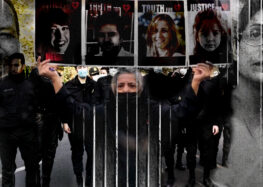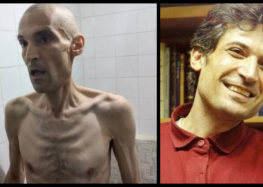Political Prisoner Farhad Meysami Refusing Food and Medication in Desperate Protest

Political Prisoner Farhad Meysami has intensified his hunger strike against his unjust imprisonment by refusing to take medication for a serious illness, the Center for Human Rights in Iran (CHRI) has been informed.
“Farhad suffers from colitis but he has stopped taking his pills, and the water that goes with it, to protest being violently transferred against his wishes to the prison clinic yesterday [September 26],” said a family source who requested anonymity for fear of reprisals.
The 48-year-old civil rights activist and physician began refusing food on August 1, 2018, a day after he was arrested for his peaceful activities. On September 8 he also severely limited liquid consumption, according to sources with knowledge of his condition.
For advocating for the rights of women in Iran who want the hijab to be a choice rather than compulsory, Meysami has been charged with “assembly and collusion against national security with the intention to incite women to appear in public with bare heads,” “propaganda against the state” and “insulting the hijab as an indispensable Islamic principle.”
“Since his transfer to the prison clinic, it has been very hard to get any information and we’re very worried about him,” said the source.
Meysami was scheduled for a hospital visit on September 18, 2018, but he refused to go in shackles. To punish him for his peaceful protest, the prison authorities canceled the appointment.
Meysami’s lawyer Mohammad Moghimi stated on Instagram on September 18 that Iran’s judiciary has banned him from representing or visiting his client.
Since February 2018, at least seven lawyers who have taken on politically sensitive cases in Iran have also been arrested, charged, and blocked from taking on new cases in a crackdown aimed at preventing defense attorneys from representing people detained on politically motivated charges.
As part of the crackdown, the judiciary has restricted those detainees, who are held on “national security” charges, to choosing their lawyers from a list of just 20 approved by the judiciary.






